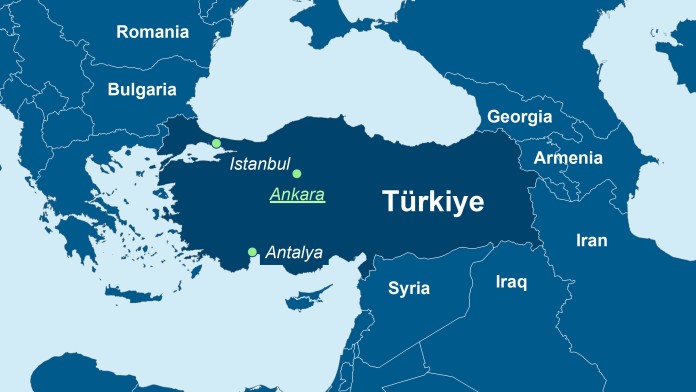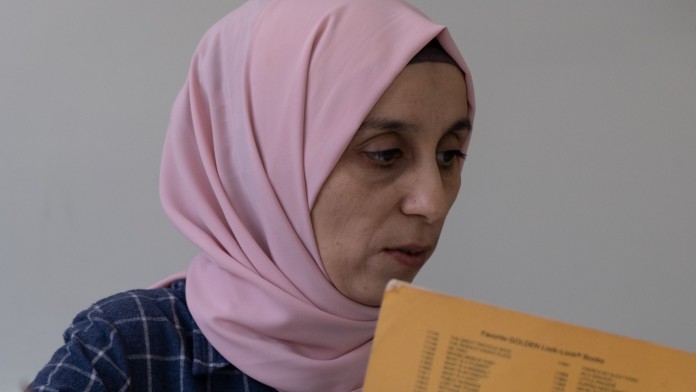
As of: 11/2022
The project provides Syrian refugee children access to school education and learning opportunities by employing Syrian support staff in the public education system and other educational and social institutions. On average, 4,700 Syrian assistants benefit from the employment opportunities, which means that approximately 250,000 children and young people can be reached. The project is an essential part of a comprehensive UNICEF programme in Türkiye, which aims to provide good and inclusive education in a protected environment to prevent a “lost generation”.

Türkiye is home to the largest group of Syrian refugees fleeing abroad, with 3.6 million registered Syrian refugees. The influx of Syrian refugees poses enormous challenges for Türkiye in the provision of infrastructure and basic services. According to estimates, around 400,000 Syrian refugee children of school age currently have no access to school education. The risk of discrimination, isolation and various forms of exploitation is particularly high for refugee children. The experiences of war and migration, being uprooted from their familiar social environment and life at the minimum subsistence level can lead to impairments of the children’s psychosocial well-being. Regular school attendance can therefore protect the vulnerable group of children, which is particularly at risk from exploitation and violence in times of crisis, and enable them to experience a proper daily routine in order to prevent a “lost generation”. Learning the Turkish language and contact with Turkish children also strengthens social cohesion. In the interest of a holistic approach, Syrian support staff also support educational and learning opportunities outside the public education sector, for example at youth centres and municipal institutions.
The key measure of the project financed by the Federal Ministry for Economic Cooperation and Development (BMZ) is financial support through the creation of formal job opportunities for Syrian support staff. The project is being implemented by the United Nations International Children’s Emergency Fund (UNICEF) in close cooperation with the local partner and has been in implementation since the 2016/17 school year. Since the start of the project, the general conditions for schooling refugee children have evolved, and all temporary education centres have now been closed. Since then, all refugee children have been taught at regular Turkish schools. However, there is still a great need to ensure access and retention in schools as well as in educational and learning opportunities outside the formal system. This is particularly true in view of the high number of refugee children who, for various reasons, do not attend school and are exposed to a high number of risks. UNICEF is therefore employing up to 4,700 Syrian support staff through the Turkish Red Crescent, the Association for Solidarity with Asylum Seekers and Migrants (ASAM), as well as the Foundation for Youth and Sports, who support activities at public educational institutions, in the programmes of the implementation partners and at other institutions that offer high-quality education and learning opportunities for Syrian refugee children. The project is profiting from the close cooperation between UNICEF and the Turkish government, in particular with the Ministry of Education and the Ministry of Youth and Sports, which has existed since the start of the crisis in Syria in 2011.
The project has considerable large-scale effects. 4,700 Syrian support staff receive wages based on the Turkish minimum wage and can thus make a living for themselves and their families. In addition, the tasks in educational institutions give support staff meaningful employment that provides structure during a difficult and precarious life situation. Syrian support staff form a key link with Syrian refugee children to bridge linguistic and cultural barriers. Access to school lessons and learning opportunities significantly improves the future development and income opportunities of Syrian refugee children and thus opens up their future prospects. Although the aim of the project was not to achieve a long-term impact and instead to initially achieve quick employment effects and short-term access to education for refugee children, the multi-year support and constant further developments in the programme have caused a transition from acute emergency aid to medium-term and structural support.
The aim of the Financial Cooperation project is to provide Syrian refugee children in Türkiye with improved access to formal education. By promoting access to and retention of refugee children in educational institutions through the hiring of Syrian support staff, it contributes to the United Nations Sustainable Development Goals of “Universal primary education” and “Ensuring inclusive and equitable quality education for all”.
The project is being implemented by the United Nations Children’s Fund (UNICEF) as part of the overarching initiative “Preventing a ‘lost generation’ in Türkiye” and is receiving EUR 35 million in support. Project funds from Phase VI were used to finance the hiring of approximately 4,700 Syrian support staff for the 2021/22 school year in various educational and social institutions at several locations in Türkiye. They support the facilities with administrative and technical tasks. As a result, around 250,000 school children benefit from the project. The project is part of the Middle East employment campaign as part of the special initiative “Tackling the root causes of displacement, reintegrating refugees”.
The project contributes to the achievement of these following United Nations Sustainable Development Goals:
KfW Group
KfW Development Bank
KfW Office Ankara